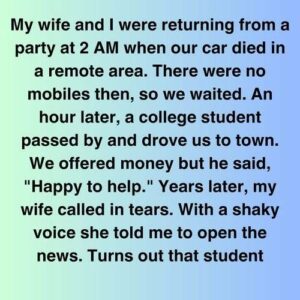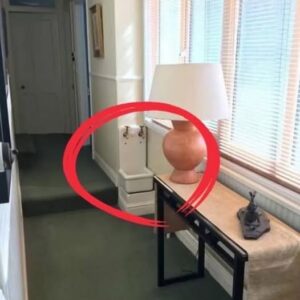My grandparents’ home sat peacefully on a hillside, built by my grandfather Lionel with his own hands. Every part of that house held memories—wind chimes he crafted, a tree carved with generations of initials, and the stone steps my grandmother swept each morning. For decades, their land was more than property—it was a living legacy.
One afternoon, my grandmother called, her voice trembling. A bulldozer was cutting into their land. She was certain—it wasn’t a mistake. My grandfather confronted the construction crew, only to be brushed off and handed a business card. When he called the developer, the response was cold: “Then sue me. I’m not moving it.”
Lionel was devastated—not just by the land lost, but by the disrespect. Weeks passed as construction dug deeper into the hill, destroying the garden where their children once played. A neighbor, Patrick, visited and listened quietly. Then he had an idea.
The next morning, his old pickup was parked squarely on the disputed land, with a note: Private Property. Do Not Trespass.
It wasn’t just about dirt. It was about dignity, legacy, and standing up—quietly but firmly—for what was rightfully theirs.





